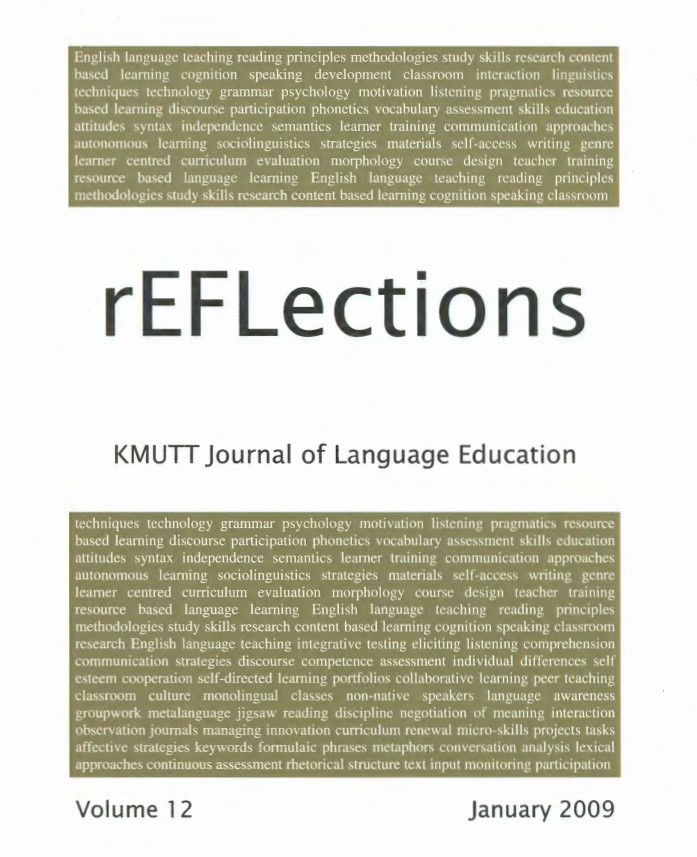Vocabulary Learning Strategies by Thai Primary School Students
Main Article Content
Abstract
The study surveyed vocabulary learning strategies of the Bangkok Metropolitan Administration’s (BMA) primary school students and their problems in vocabulary learning. A questionnaire was distributed to 50 Pratom 6 students (aged 11-12) and 10 of them were further selected for a follow-up semi-structured interview. The findings indicated that most students realized the importance of vocabulary learning and they had encountered new words from various sources. However, they did not devote enough time to vocabulary learning and this strongly affected their lexical development. Moreover, many of them relied heavily on rote learning rather than other strategies. Their vocabulary learning problems were also related to their negative attitudes and poor English background as well as lack of support from their teachers, parents and peers. Therefore, teachers and parents need to work cooperatively to support their learning and to deal with negative attitudes. Also, students should be trained with a variety of effective vocabulary learning strategies in order to maximize their potential for language learning.


